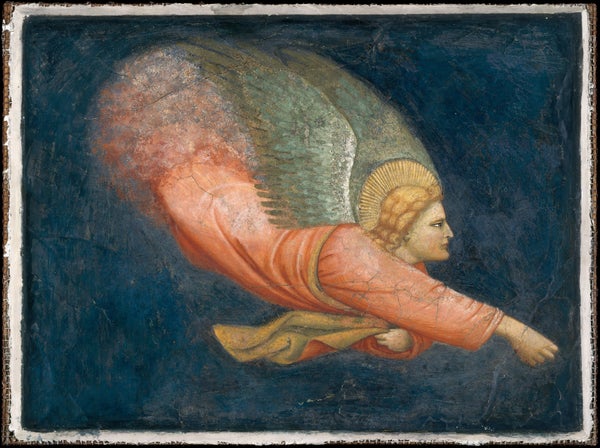This article was published in Scientific American’s former blog network and reflects the views of the author, not necessarily those of Scientific American
Thomas Alva Edison famously opined that genius is “one percent inspiration, ninety-nine percent perspiration.” Though the inventor and businessman fell short of self-identifying as an atheist, he also asserted, in a 1910 New York Times Magazine interview, that “Nature did it all—not the gods of the religions.” New research suggests that Edison’s two statements above—and similar others he made—could be more intrinsically connected than it might seem at first sight: people who experience more inspiration in their lives tend to be stronger believers in God.
Research had previously shown that individuals with more analytical cognitive styles are less likely to be believers. The new study, published in Psychological Science by Clayton R. Critcher and Chan Jean Lee of University of California, Berkeley, and KAIST, set out to determine the experimental origins of belief in God. They conducted a series of studies in California and Korea, to test the hypothesis that feeling inspired encourages a belief in God, and that it does so because “inspiration offers a transcendent experience that produces feelings of connection to something greater than the self.”
Participants completed multiple scales, including surveys of the strength of their belief in God, of their perception of God as loving versus controlling, and of how commonly and deeply they felt inspired in their day-to-day lives.
On supporting science journalism
If you're enjoying this article, consider supporting our award-winning journalism by subscribing. By purchasing a subscription you are helping to ensure the future of impactful stories about the discoveries and ideas shaping our world today.
The most fascinating component of the study may have been the authors’ attempt to connect religious belief to “the chills” that people can feel in response to emotional events. Unbeknownst to me before reading this paper, there are two different kinds of chills, wonderfully known as goosetingles and coldshivers. Goosetingles, as indicated by their name, are “a combination of goosebumps and a tingling sensation, whereas coldshivers reflects a mix of coldness and a literal physical shake.” (I have personally experienced the former not infrequently, in response to music or poetry, but I’m not aware of having felt the latter).
Alas, the data showed no correlation between the belief in God and either goosetingles or coldshivers. Instead, the researchers found a significant correlation between inspiration and belief: the more participants felt inspired in their daily lives, the more strongly they believed in God. This connection held for those who saw God as loving, and also for those that saw God as controlling—but it was unrelated to people’s general beliefs about positive possibilities (such as life in other planets, or the spread of democracy).
In a subsequent manipulation, participants were randomly assigned to write about and relive a memory of: feeling inspired by something or someone, feeling inspired to do something, or feeling emotionally neutral/mildly bored. Reliving an inspired-by experience enhanced religious belief in not only believers but also skeptics. An additional experimental scenario showed that being awed (by a nature video) did not similarly increase participants’ belief in God.
For their final experiment, the scientists left the predominantly Christian cultural context of the US for Korea, where nonreligious people and Buddhists combine to form a population majority. In Korea, the experimental manipulation consisted of assigning subjects to an inspiration condition versus a control condition. In the inspiration condition, participants watched a TV talent show in which a formerly homeless contestant defied expectations by offering a rousing performance. In the control condition, participants watched Psy’s “Gangnam Style” music video. As intended, participants felt more inspired after watching the talent show than the Gangnam Style video—though the paper clarifies that participants enjoyed the Gangnam Style video more. The inspiration video enhanced religious belief irrespective of the participants’ religious affiliation (Christian, Buddhist, or nonreligious).
The researchers concluded that being inspired may boost belief in God because it offers a feeling of being connected to something greater than oneself. Though it could also be the other way around: the act of believing in God might cause the feeling of inspiration and connection. It gives me the goosetingles either way I think about it.
